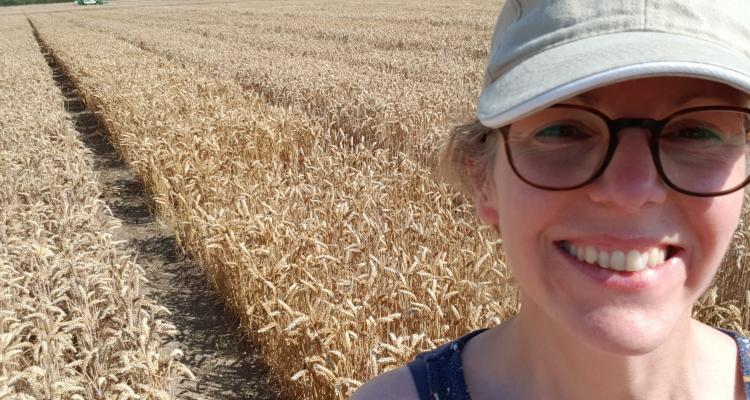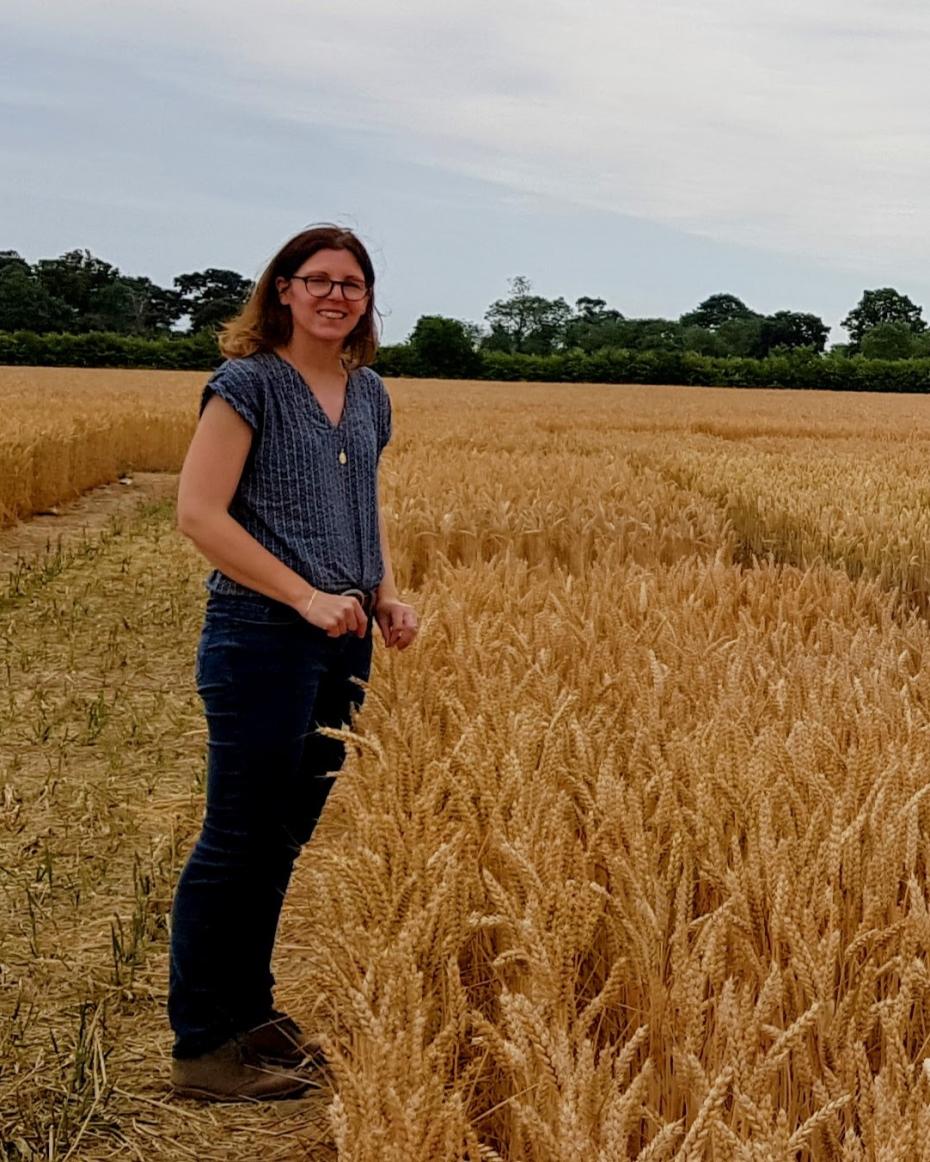We asked Dr Stéphanie Swarbreck, Janet Harker Official Fellow in Biological Sciences, a few questions as part of International Day of Women and Girls in Science 2024.
Feature
#WomenInScience Profiles: Dr Stéphanie Swarbreck

What could the science community do to ensure a greater inclusion of women and girls in science?
We have already come a long way in ensuring greater inclusion of women and girls in science and yet there is still a lot to do. In biological sciences, there is not so much of an issue in attracting women and girls to study the subject. However, fewer women than men reach leadership positions. This is problematic because role models are important in encouraging women to pursue a career in STEM and people in leadership positions have the capacity to change the culture within organisations to achieve greater inclusion. Women feel more empowered to participate in meetings when there are a few of them rather than being on their own, so achieving a critical number is important.
There are many actions that we can all take to ensure that women are included, such as recognising and calling out misogyny (this article in Nature offers many suggestions), organising events where women come together to meet, network and mentor each other (e.g. Global Women in Crop Science coffee morning), ensuring that scientific conferences and events are gender balanced (see here for guidelines on organising inclusive meetings and here for information on a directory of Women in Crop Science that conference organisers can consult).
How does Girton encourage women and girls to enter STEM careers?
Girton College offers a supportive environment for women and girls who are interested in developing their STEM career. The College is home to many inspiring Fellows and Bye-Fellows who are passionate about their subject and provide excellent teaching in STEM subjects. Its location on the outskirt of Cambridge is an advantage for engineers who can easily cycle to West Cambridge Campus or plant biologists who can stop by the Crop Science Centre on their way to and from town.
Girton College has a rich history of supporting women’s education and has continued developing as a highly inclusive college, welcoming men in the 70s, and being one of the early colleges involved in the Cambridge Foundation Year programme supporting disadvantaged applicants to the University. This commitment to supporting women and girls in STEM careers is felt throughout the year within the College, mainly due to the many events, from talks to opportunities to meet alumni from the College allowing inter-generational exchanges amongst women in STEM careers.
What inspired you to pursue your research?
I loved maths and science at school, and decided to study biological sciences at university. I was curious about how organisms function at the cellular and molecular levels and I wanted my work to make a positive impact on people’s livelihood, in part because I grew up in a rural village where farming and food production was a key industry. A summer internship at INRA (France’s National Institute for Agricultural Research) convinced me that crop research would enable me to be curious and study plants as well as making a contribution to society.
Tell us about your research - what are the challenges, and what is the impact of the work?
I am plant biologist with an interest in understanding how plants perceive and respond to their environment so that we can select crops requiring less input and with a lower environmental impact. One of the main challenges facing us currently is how to continue to produce sufficient nutritious food for a growing world population while limiting the negative environmental effects.
At NIAB, I lead a research group with two research scientists, a senior technician and a PhD student. For some of our work, we focus on wheat, which is a major cereal in the UK and worldwide. We use many of the tools that have been developed to study this crop such as mutants, genetic modification or quantitative genetics to address specific hypotheses. Our aim is to identify genes or pathways that can be manipulated to lower the requirements for nitrogen fertiliser. We look for effects of these genetic manipulation at the whole plant level, and we also have access to field trial. We work collaboratively across many disciplines including soil science, agronomy, and environmental science.
It is the combined advance in all these disciplines that will bring significant impact in the field. Recently, we have also started to work with an interesting crop called Tef, which is highly relevant to food security in the Horn of Africa, especially Ethiopia. Although, this is a crop upon which millions of people rely for food security, it has not benefitted from the progress that has led to advances for major crops such as wheat, rice or maize. Tackling the challenge of sustainable food production will rely on improving the sustainability of major crops as well as improving the yield production of indigenous crops.
You can follow Stéphanie on X/Twitter: @StephanieSwarbr

